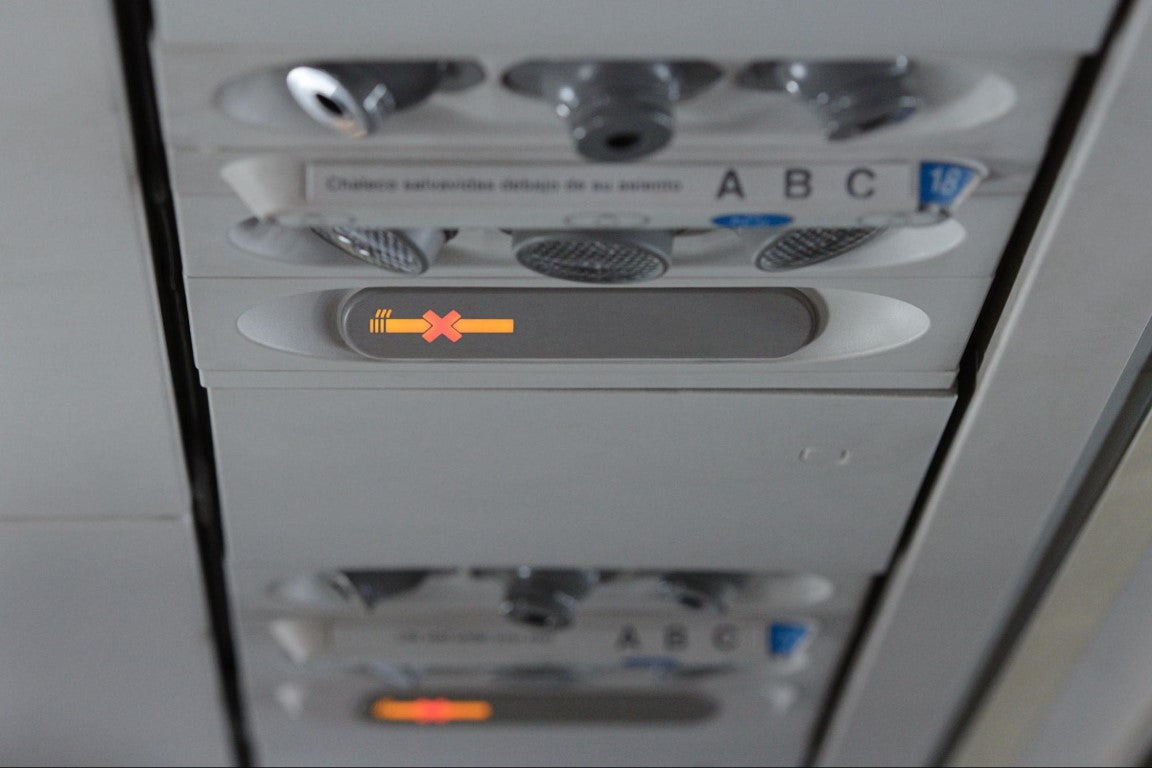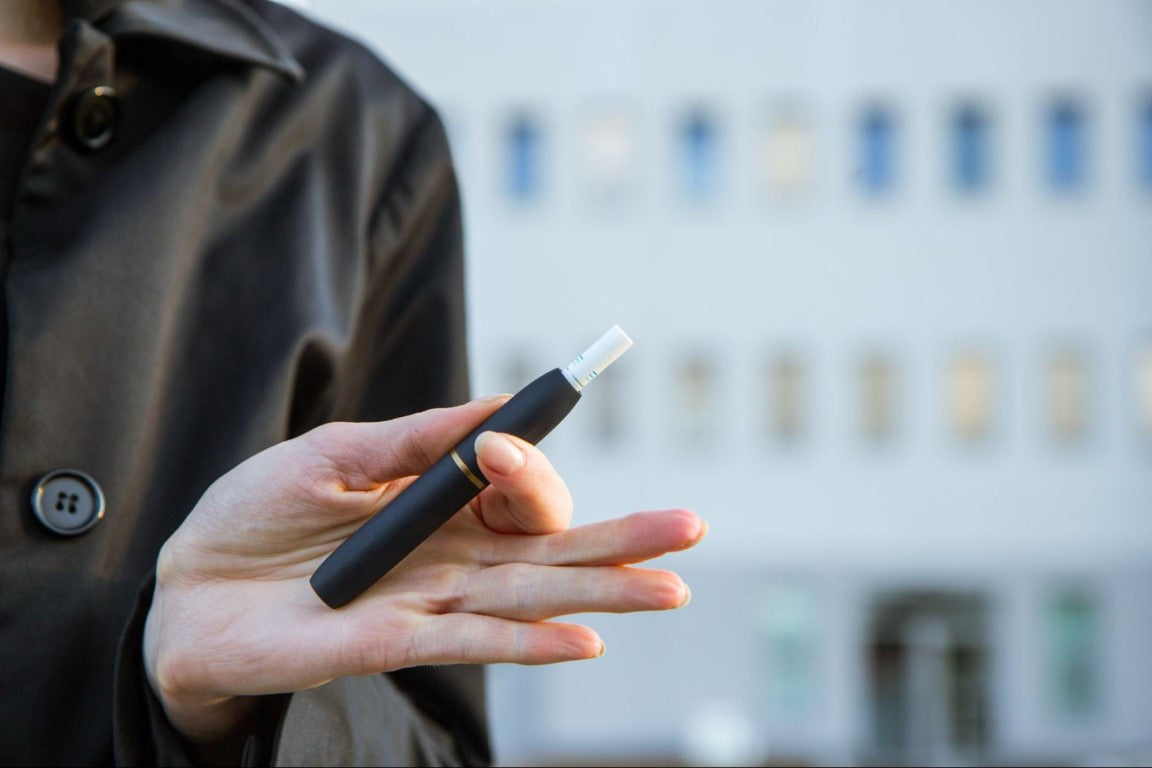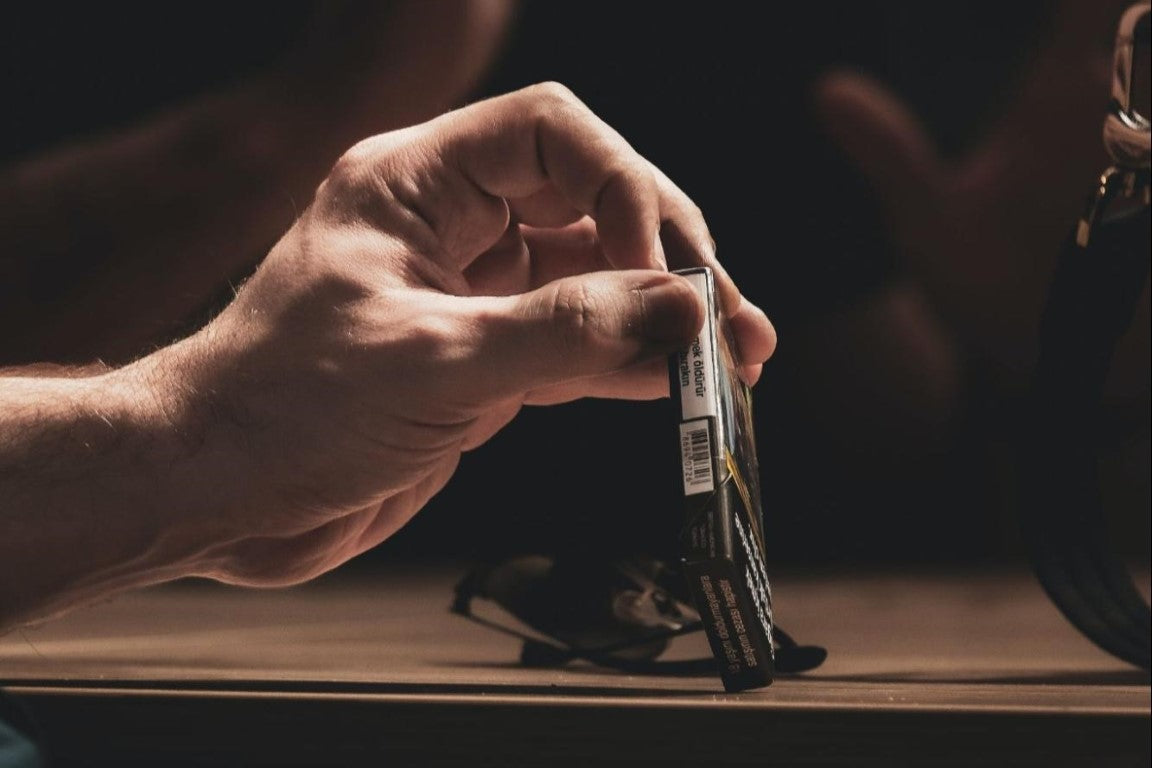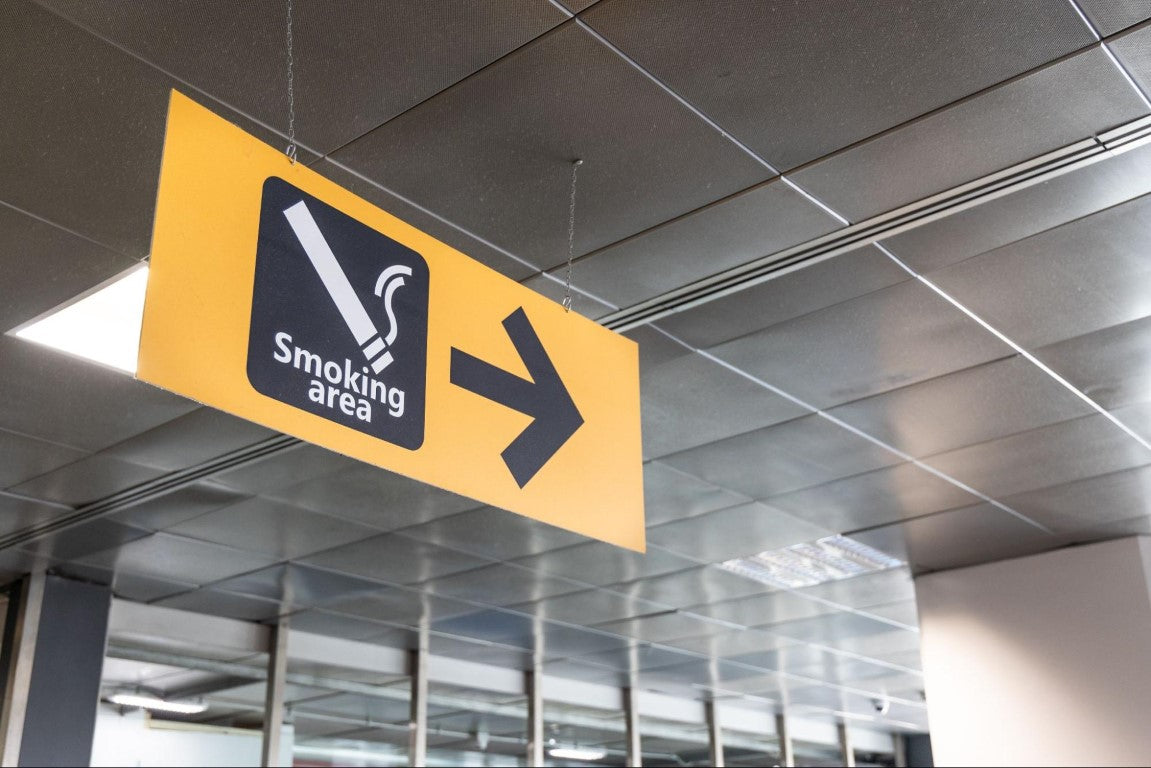CONTENTS
Can You Bring Cigarettes On A Plane: Essential Air Travel Rules
Modern air travel comes with a plethora of rules and regulations. With each airline, airport, and country potentially having its own set of rules, it's easy for even seasoned travellers to feel overwhelmed. Imagine how challenging it would be for a smoker concerning the carriage of tobacco products.
Therefore, to ensure a hassle-free journey, it is essential to have a clear understanding regarding whether can you bring cigarettes on a plane. You wouldn’t want to be caught unaware and have your cigarettes confiscated at security checks while paying unnecessary fines.
In this blog post, we will provide a comprehensive guide to what you should do when carrying cigarettes on board. It will outline the dos and don'ts, allowing you to enjoy your air experience fully.
Disclaimer
The following information is only for those 21 and above. If you are below the legal age, we kindly ask you to exit this page immediately. Furthermore, we do not endorse or encourage any form of smoking, as it can harm your health.
While it is essential to be informed about the regulations surrounding travelling with cigarettes, we encourage everyone to explore smoking cessation resources to foster a healthier lifestyle and well-being. Here are some to get started:
Key Takeaway
- The TSA allows you to pack your cigarettes in a carry-on, checked bag, or on your body.
- However, you can’t smoke them on flights, or else you’ll face thousands of dollars in fees.
- Vaping devices and e-cigarettes are only accepted in carry-on bags and not allowed in checked luggage.
- US residents travelling domestically can bring cigarettes of any amount.
- Bringing more than 200 cigarettes, or one carton, on international travel requires you to declare them and pay a tax.
- Certain countries have strict anti-smoking policies (such as Costa Rica or Bhutan), so it’s important to check the regulations of the country you’re heading.
- You can’t bring Cuban cigars into the US. It’s fine if you are travelling to the UK.
Can You Bring Cigarettes On A Plane?
Cartons of cigarettes are allowed in both carry-on and checked bags.
— AskTSA (@AskTSA) September 19, 2023
Let's start by addressing the fundamental question: Can you bring cigarettes on a plane? The answer is yes, but with certain rules and regulations in place.
According to TSA rules, you can bring cigarettes and various tobacco products like loose tobacco, chewing tobacco, and pipe tobacco on a plane. They can be in your pockets, carry-on, or checked bags without confiscation, with no quantity limits. However, this applies to domestic flights only.
Furthermore, you are strictly prohibited from smoking while sitting on the aircraft. Any attempt to do so may result in fines of up to $4,000.
Depending on which airline you're flying with and what country you're heading to, you may also be subject to further specific regulations on bringing cigarettes.
If you don't comply with these restrictions, your cigarettes will likely be confiscated and relevant fines incurred.
How Many Cigarettes Can You Take On A Plane?
There are no precise restrictions on the number of cigarettes you can bring, according to TSA standards. You can be entirely relaxed about this if you are travelling domestically.
When it comes to international travel, however, things are a little different. Most nations have a tobacco import limit in their customs guidelines. Most airlines and countries have rules that allow you to bring a reasonable amount of cigarettes for personal use. This typically translates to one to two cartons of cigarettes, roughly 200 to 400 cigarettes.
Some countries may have stricter rules, while others may have duty-free allowances that permit a higher quantity of cigarettes. Here are some examples:
- United States: Maximum 200 cigarettes, 100 cigars if returning from other countries.
- United Kingdom: 200 cigarettes, 100 cigarillos, 50 cigars, 250 grams of tobacco, or 200 sticks for electronic heated tobacco devices.
- France: 200 cigarettes, 100 cigarillos, 50 cigars, or 250 grams of pipe or cigarette tobacco if arriving from another EU country.
- China: Maximum 400 cigarettes, 100 cigars, or 500 grams of tobacco.
- Dubai: Maximum 400 cigarettes, 50 cigars, or 500 grams of tobacco.
- Mexico: 10 cigarette packs, 25 cigars or 200 grams of tobacco for those over 18 years old.
- Thailand: Maximum 200 cigarettes or 250 grams of tobacco.
No Matter How Strong the Craving, Smoking is Not Allowed During Flights

Smoking on an aeroplane is completely banned; this rule is the same for all airlines. Breaking this rule not only violates the airline's policies but can also result in hefty fines, possibly as high as $4,000.
In more severe cases, if you interfere with a smoke detector or disregard the instructions of a crew member asking you to cease smoking, you might even face potential arrest.
So, while the urge to smoke may arise, please respect this regulation and refrain from lighting up during your flight. Instead, consider other ways to pass the time and make your journey more comfortable. Just taking a nap or listening to your favourite songs via your Bluetooth headphones.
Most airlines have banned smoking onboard for years, but they also offer options for regular smokers. You can easily find designated smoking areas in any airport, where you can get rid of the cravings while not affecting the other passengers’ health.
- List of U.S. airports and their designated smoking areas
- List of U.K. airports that allow smoking in some areas.
Is There Any Age Limitation On Bringing Cigarettes For Flights?
There is typically no age limitation on bringing cigarettes for flights. However, the legal age for purchasing and possessing tobacco products varies from country to country and even within regions of some countries.
In the United States, for instance, the Tobacco 21 (T21) law raised the age from 18 to 21. Retailers can't sell tobacco products, like cigarettes and cigars, to those under 21.
In the UK, anyone under 17 can’t have the alcohol and tobacco allowances. And if you are an adult, you have to declare any alcohol and tobacco you are carrying for personal use.
You can bring tobacco products within specific limits if you're over 21 and a returning resident traveller. These limits depend on your personal exemptions. Usually, it's up to 200 cigarettes and 100 cigars when arriving from countries other than specific places.
However, if you're coming back from places like American Samoa, you have a special allowance: you can bring 1,000 cigarettes once a month, within your $1,600 duty-free limit.
Rules For Other Cigarette-related Stuffs

Now you know that you can bring cigarettes on a plane, let's explore rules pertaining to related accessories. These rules are in place to ensure the safety of all passengers during the flight.
- E-Cigarettes And Vapes: You must carry them in your carry-on luggage, not your checked bags, due to lithium-ion batteries in use, which pose a fire hazard. Additionally, ensure that your vape juice containers are under 3.4 ounces and adequately packed in your plastic liquid bag as per regulations.
- Lighters: Cigarette lighters are allowed in your carry-on luggage. Torch or electronic lighters, on the other hand, are not.
- Matches: You're allowed to carry one pack of safety matches with you, but remember that strike-anywhere matches are not out of the question.
- Tobacco Pipes: Tobacco pipes are allowed in your carry-on and checked luggage.
- Cuban Cigars: Since September 24, 2020, the U.S. Customs and Border Protection has banned carrying alcohol and/or tobacco products into the U.S. It’s no problem if you plan to carry them landing in the UK.
- Cigar cutters: Feel free to bring them with you on your trip. But they are sharp objects, so you should place them in your checked luggage.
- Electric cigarette rollers: The TSA says they are acceptable to bring along as long as there are no sharp blades or edges. You can pack them in your carry-on.
Common Mistakes To Avoid When Carrying Cigarettes On A Plane
While the rules for bringing cigarettes on a plane may seem straightforward, there are some common mistakes that travellers often make. Let's take a look at what you should avoid.
1. Overpacking
One of the most important "don'ts" is carrying more cigarettes than the allowed limit. Each country has specific regulations regarding the quantity of cigarettes that you can carry for personal use. Before your trip, research your destination to ensure you stay within the legal limits.
Exceeding the quantity limits imposed by your destination or airline can lead to problems at security checkpoints and customs. In the worst case, you could be fined from $2 to $4,000 if caught with excessive amounts of tobacco, depending on where you live.
2. Placing E-Cigarettes In Checked Luggage

Why does this matter? Well, first and foremost, having e-cigarettes in the check-in luggage on the plane can pose a significant risk. The tightly packed environment, coupled with the potential of rough handling, can easily lead to accidental ignition.
Therefore, any smoking materials, especially e-cigarettes, should never be packed in your checked luggage. Instead, store them in your carry-on bag so you can keep them within your sight during the journey.
3. Not Keeping Cigarettes In Their Original Packaging
Another vital aspect to consider is the packaging of your cigarettes. Some airports require that cigarettes be kept in their original packaging to prevent any smuggling attempts.
Especially when you bring a lot of cigarettes, keeping them in sealed packaging can also prove they are for personal consumption and comply with import regulations.
Otherwise, unpackaged or loose cigarettes may raise suspicions. You are likely to be stopped by security for further checks, resulting in delays or confiscation.
Tips For Packing and Storing Cigarettes Safely
Before your flight, you need to make sure to pack all your cigarettes correctly. You can only bring cigarettes in a carry-on bag on a plane if they are packed very carefully. Below are some of the best practices for bringing cigarettes with you on a trip.
- Pack them in the original package they came in.
- Put them into smoke-free packaging, such as sealed plastic bags, travel humidors, or cigarette cases, which can keep your tobacco safe while flying at high altitudes.
- Make sure the package is secured with packing tape so that it stays closed when you're placing it in your carry-on bag and it doesn't pop open.
- Stack your cigarettes carefully and wrap them with paper or tape them if carrying multiple packs.
In addition, it is advisable to store your cigarettes in a designated compartment of your carry-on bag or a small, easily accessible pouch. This greatly helps reduce the hustle with security checks, as you have them easily accessible for screening.

FAQ
1. What Happens If I Bring More Than 200 Cigarettes?
Most countries have the maximum quantity of cigarettes allowed for each person per trip for personal use. If you exceed this limit, you may have to pay customs duties and taxes on the extra cigarettes.
For example, if you are going with more than 200 cigarettes to the United States, you may have to pay an additional amount for bringing in goods above the personal exemption limit. This is in addition to any duty and taxes payable.
2. Can Customs Detect Cigarettes?
Customs authorities have sophisticated tools and methods to detect cigarettes during inspections. In most cases, this is done by examination of all travellers' baggage using advanced X-ray scanners or through random checks. Attempting to smuggle or exceed quantity limits can result in financial penalties and even legal consequences.
Their scanners are advanced enough to detect cigarettes in your baggage. However, inspectors are likelier to focus on sharp, dangerous objects such as knives, drugs or explosives than cigarettes. That said, they have the authority to inspect and confiscate them at any time.
3. Can You Bring Tobacco On A Plane Internationally?
Yes, you can generally bring tobacco on an international flight, but you must adhere to the specific regulations regarding the requirement and quantity of the cigarettes. You can bring about 250g of tobacco into the UK. It provided that you carry them on your own and for personal use.
4. Do I Need To Declare Cigarettes At Customs When Flying Internationally?
Certainly, when travelling internationally, it's usually necessary to let customs know if you're carrying cigarettes. This is a common requirement in most countries.
However, we recommend staying informed about the specific rules and duty-free allowances of your destination country because they can differ from place to place.
Not declaring your cigarettes or exceeding the allowed quantity, like carrying more than 200 cigarettes when returning to the US, can lead to fines or having your cigarettes taken away.

5. Do I Need To Keep My Cigarettes In Their Original Packaging While Flying?
While flying, keeping your cigarettes in their original packaging is generally not a strict requirement. However, there are some practical reasons to consider doing so.
Keeping cigarettes in their original packaging helps prevent damage and keeps them in better condition during the journey.
It can also make it easier to show customs officials the brand and quantity of cigarettes you're carrying, which can be helpful during the declaration process when entering a new country.
6. Can I Smoke On A Private Jet?
What's the deal with smoking on a private jet? Well, suppose you're the owner of the plane, or you have the owner's green light to light up some tobacco while on board. In that case, it's all good as long as the jet follows the Federal Aviation Administration (FAA) guidelines for how the passenger and crew areas are set up.
So, in a nutshell, if you're on a private jet and both the owner and the pilot are okay with you smoking, it's allowed. Just make sure there's a proper fire extinguisher on board to stay safe.
Final Words
In conclusion, the answer to "Can you bring cigarettes on a plane?" is yes. Carrying cigarettes on a plane is permitted under certain conditions, while smoking is still strictly banned. Plus, you should keep your cigarettes in their original packs and stick to any limits they have where you're going.
It’s always a good idea to do some digging into the requirements of TSA and customs regulations regarding tobacco products. Remember that these rules can change, so please check with your airline and the authorities before your trip to know what's up-to-date.
We hope you found our guidelines on bringing cigarettes on a plane helpful. Our team at CabinZero makes every effort to provide you with well-researched information about travel and advise you about the best ways to enjoy your flights.
Feel free to share your thoughts and experiences in the comments section below. If you found this guide helpful, don't hesitate to share it with your friends, family, and fellow travellers to help them stay informed.






















Hinterlasse einen Kommentar